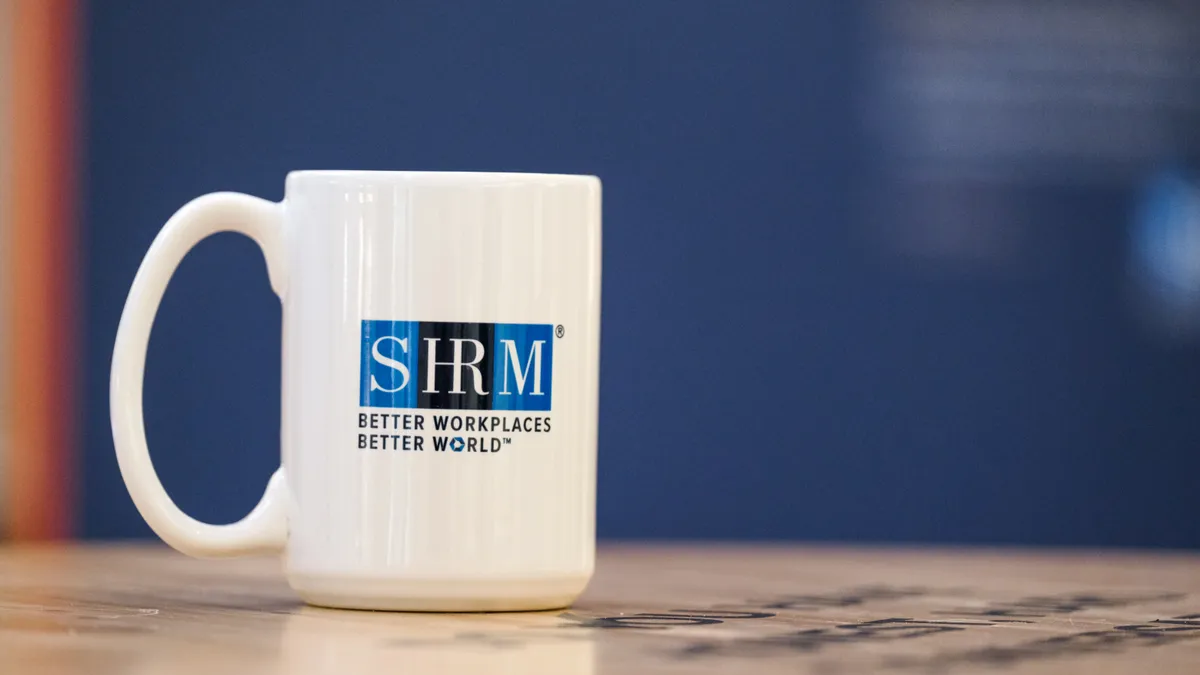After a year off due to the coronavirus pandemic, the Society for Human Resource Management's annual conference returned this month, both in Las Vegas and online. With it came several sessions that have proved themselves perennial favorites.
Among those were presentations on documentation and individual liability for HR professionals, as well as one predicting priorities for the U.S. Supreme Court. Below are three compliance tips from those sessions.
1. Prioritize quality documentation.
HR pros must prioritize clear, concrete and professional documentation — and train managers to do the same, Allison West, principal at Employment Practices Specialists said at a 2019 SHRM conference. HR Dive covered West's session in a story titled Think before you Slack: 10 documentation mistakes to avoid.
In 2021, she echoed this sentiment at SHRM's annual conference, stating that "the goal is, of course, always to help people — our employees — be successful." To that end, documentation creates credibility for the writer, helps the company and provides notice to an employee, she said.
Managers are busy; they won't remember the details of performance conversations, West continued. And documentation can serve as a defense to a harassment or discrimination claim: "Remember, you create your documentation for a fact-finder down the road. Make it clear; make it concise; make it objective. Be consistent and be fair."
Remember, you create your documentation for a fact-finder down the road. Make it clear; make it concise; make it objective.
Allison West
Principal, Employment Practices Specialists
2. Take seriously the obligation to act.
Courts and jurors generally believe that HR must act when presented with evidence of wrongdoing in the workplace, R. Scott Oswald, managing principal at The Employment Law Group, told attendees in 2019. In Failure to speak up could land HR pros in hot water, HR Dive outlined Oswald's recommendations for those at risk of individual liability at work.
This year, he elaborated, explaining HR's role in such situations. To avoid the courtroom, remember, "you are the face that a company shows to its employees," he said.
"Perhaps more than anyone, you own the company's playbook for handling situations with its employees. You are the system keeper," Oswald continued, adding that HR's reaction to situations should be quick, effective and by the book.
Perhaps more than anyone, you own the company's playbook for handling situations with its employees.
R. Scott Oswald
Managing Principal, The Employment Law Group
3. Keep an eye on the horizon.
There are a few things on the employment law horizon that HR professionals should "definitely keep an eye on," said Joseph Beachboard, managing director at Ogletree Deakins, during his recurring session, "The Supreme Court Speaks. Are You Listening?"
First, there's the tension between state and federal law with respect to marijuana. Issues like off-duty conduct and testing could make their way to the Supreme Court, he said.
Religious accommodation issues also are seeing increased attention, according to Beachboard. The standards in such cases were, for a long time, relatively employer friendly, he said; reasonable accommodation didn't require much and employers could meet the law's "undue burden" standard easily. "But many courts have been changing that approach," Beachboard said; "it'll be interesting to see what the Supreme Court thinks about some of these issues."
COVID-related litigation likewise is something to keep an eye on. President Joe Biden's impending employer vaccine mandate will, of course, draw lawsuits, Beachboard said. "Undoubtedly, that will be challenged; undoubtedly, that will go up to the U.S. Supreme Court." Similarly, employers will see litigation alleging failures to accommodate disabilities and religious beliefs with exemptions from the mandate, he said.
'Undoubtedly, [Biden's vaccine mandate] will be challenged; undoubtedly that will go up to the U.S. Supreme Court.'
Joseph L. Beachboard
Managing Director, Ogletree Deakins
















